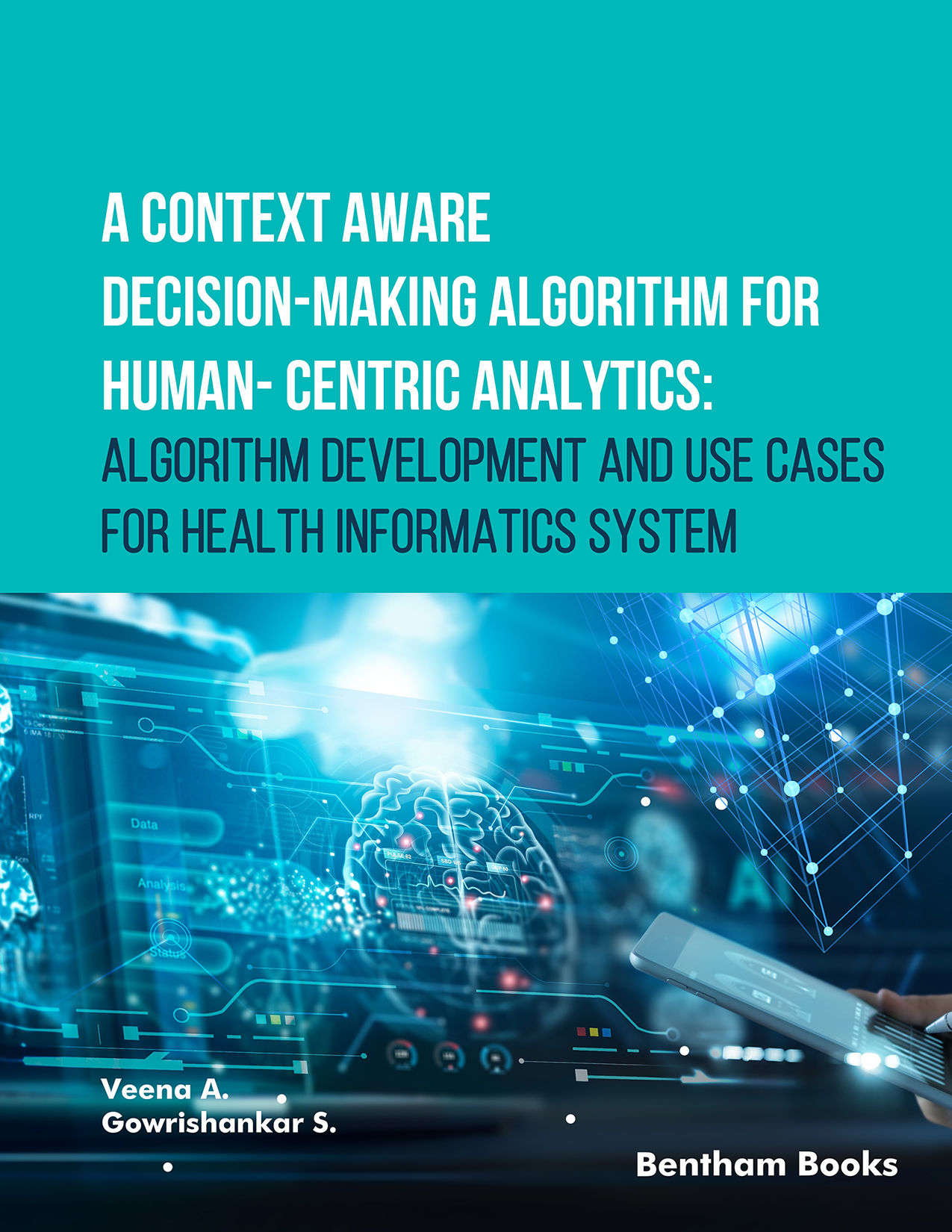A new era in healthcare has been brought about by technological advancements; this period is characterized by the intelligent use of data to support decision-making and improve the human-centered aspects of patient care. To explore the complex field of health informatics, our book, "A Context-Aware Decision-Making Algorithm for Human-Centric Analytics: Algorithm Development and Use Cases for Health Informatics System," provides a detailed examination of algorithms and how they can revolutionize decision-making processes.
The awareness that algorithm development and human-centric analytics are increasingly intertwined and have become crucial to the development of healthcare systems catalyzed this book. The creation of algorithms suited to the details of health informatics has become essential as we manage the elaborated patient data, clinical workflows, and the varied demands of healthcare stakeholders.
This book chapter offers an overview of studies, perspectives, and applications that together add to the conversation on context-aware decision-making in health informatics. These sections encompass a range of multidisciplinary viewpoints from computer science, artificial intelligence, data analytics, and healthcare administration. This reflects the teamwork needed to address the complicated problems in health informatics.
The creation of algorithms has significant ramifications for the provision of healthcare services in the real world and is not only an academic undertaking. Beyond theoretical concepts, the proposed algorithms provide workable answers to the challenges of contemporary healthcare delivery. The use cases showcased the exciting potential of algorithms, ranging from individualized patient care to clinical decision support systems. The focus of this book is on the aspects below.
Smart health trackers - Fitbit wearables are popular fitness tracking devices that offer a range of features designed to help individuals monitor and improve their health and well-being. The Fitbit data is extracted using the Fitbit APIs to perform a deeper analysis of the data and understand the correlation and anomalies present in the data and the implications on the user using suitable ML models.
Gallstone Detection - Detecting gallstones using object detection involves the application of computer vision techniques to identify and locate gallstones within medical images, typically ultrasound or CT scans. Object detection algorithms such as SSD - EfficientDet, Faster R-CNN, and Mask R-CNN are employed to automate this process, providing faster and more accurate analysis.
Diabetic Retinopathy - Diabetic retinopathy is a diabetes complication that affects the eyes and can lead to blindness if not detected and treated early. This model uses improved LSTM based on a hybrid Harris Hawk and Mayfly model to identify and categorize hemorrhages.
We invite readers to embark on a journey of "A Context-Aware Decision-Making Algorithm for Human-Centric Analytics," exploring the intricate interplay between algorithms, human-centric analytics, and the future of healthcare.
Veena A
Department of Computer Science and Engineering
Dr. Ambedkar Institute of Technology
Bengaluru, Karnataka 560056
India
&
Gowrishankar S
Department of Computer Science and Engineering
Dr. Ambedkar Institute of Technology
Bengaluru, Karnataka 560056
India

